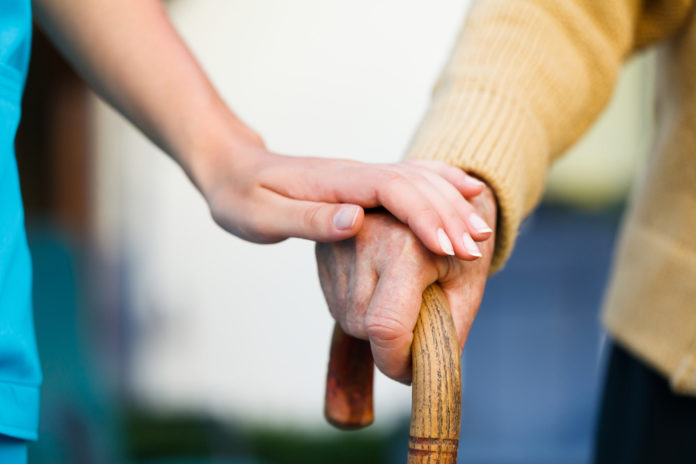Especially as the older generation is living longer, caregiving is widely practiced, with an approximate 34.2 million Americans identified as unpaid caregivers for adults aged 50 and older according to a 2015 AARP report. Additionally, 85 percent of caregivers provide care for a relative, while 49 percent care for a parent or parent-in-law. And while you already have your loved one’s best interest at heart, there are nine tips and ways to provide optimal care for the elderly.
9 Ways to Care for Elderly
1. Schedule Routine Doctor Visits
One of the best way to care for the elderly is by scheduling doctor visits on a routine and as needed basis. Visiting the doctor is a proactive health approach and can address and mitigate any health concerns, along with ensuring effective management of preexisting health conditions. Regular check-ups and screenings include monitoring for cognitive decline and depression should be conducted regularly. Ultimately, speak with your loved one’s primary care physician for guidelines regarding appropriate and recommended tests and screenings.
2. Anticipate Expenses
While being proactive and consistent with care visits is essential, it is critical to anticipate expenses of such services. Equally as important, recognize and consider the pros and cons of managed care, as they may impact your loved one’s health in a number of ways. For instance, while managed care can lower costs, it oftentimes requires care advocacy. This may place more time and stress to ensure appropriate treatment schedules and plans for your loved one.
3. Establish A Durable Power of Attorney
As a caregiver, establish a durable power of attorney (POA) to safeguard an unpredictable future related to health and financial responsibilities and needs. If the senior feels as if they are losing their independence, inform and highlight the importance of a durable POA. For more information on how to go about or obtain a durable power of attorney, a lawyer can offer their assistance, guidance, and expertise.
4. Guarantee Home Safety
With falls identified as the leading cause of home injury death, it is imperative to guarantee home safety as a caregiver. Ensure home safety for the elderly by confirming adequate lighting, installing railings in the stairways and bathrooms, and eliminating clutter.
5. Accommodate Mobility
Seniors may not be able to move around as freely and comfortably compared to their younger years, which may be linked to muscle weakness, joint pain, neurological diseases, and other age-related health concerns. Accommodate your senior’s mobility, as doing so offers them a sense of security and autonomy to keep as functional as possible. There are a number of assistances to ensure safe accessibility, including canes and scooters, while public transportation services can also be valuable to escort your loved one as needed.
6. Ensure Good Nutrition
Whether related to a compromised ability to cook or reduced appetite, seniors are at risk of malnutrition related to a multitude of factors. Ensure good nutrition by cooking balanced meals, or encouraging meal intake at local senior centers. Utilizing a meal delivery service, such as Silver Cuisine, can also ensure nutritional needs are being met. Silver Cuisine delivers delicious, doctor-designed, and chef-prepared meals straight to seniors’ doorsteps, reassuring you that your loved one is eating healthy and delicious meals.
7. Encourage Hobbies and Social Interactions
Encourage your loved one to partake in hobbies and structure regular social interactions. Keeping seniors engaged and socially connected lessens the risk of isolation and boosts cognition, self-esteem, a higher quality of life, and a greater sense of purpose. Hobbies can also be extremely beneficial to stimulate and boost brain function, particularly if offering mental stimulation activities such as crossword puzzles, journaling, and drawing.
8. Utilize Technology
Especially if unable to venture out on a regular basis, utilizing technology can keep seniors simultaneously independent and socially connected in their comfort of their own home. Operate and teach on technological services, including webcams to talk to loved ones, television to keep entertained, and internet for researching and learning opportunities. High-tech, at-home safety devices can also quickly signal if a fall occurred, while pill reminders and dispensers help ensure medications, ultimately granting you as a caregiver a peace of mind regarding your loved one’s safety.
9. Take “You” Time
Being a caregiver is nonetheless commendable, though such a large role can be overwhelming. That being said, one of the best ways to optimize care for seniors is by taking “you” time as a caregiver, as doing so keeps you healthy enough to care for your loved one. Take care of your own physical and mental health by scheduling personal doctor appointments, seeking out additional help if or as needed, and taking a much needed spa day or vacation.






